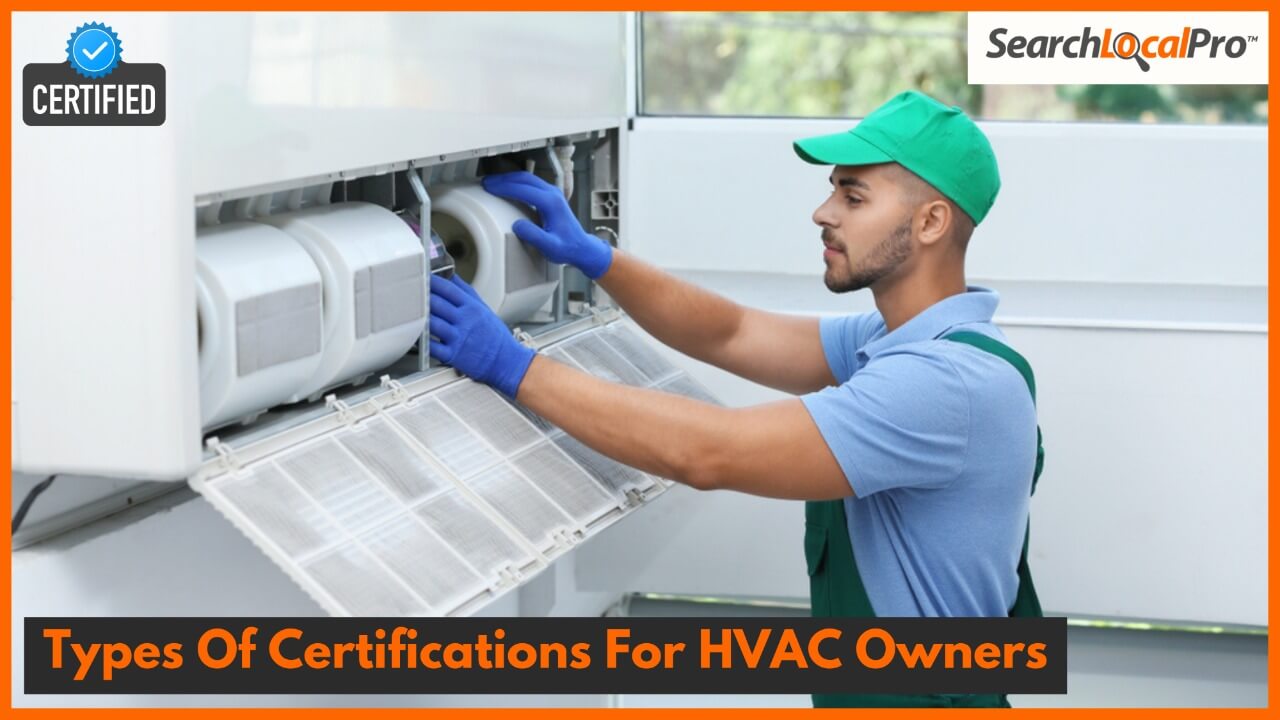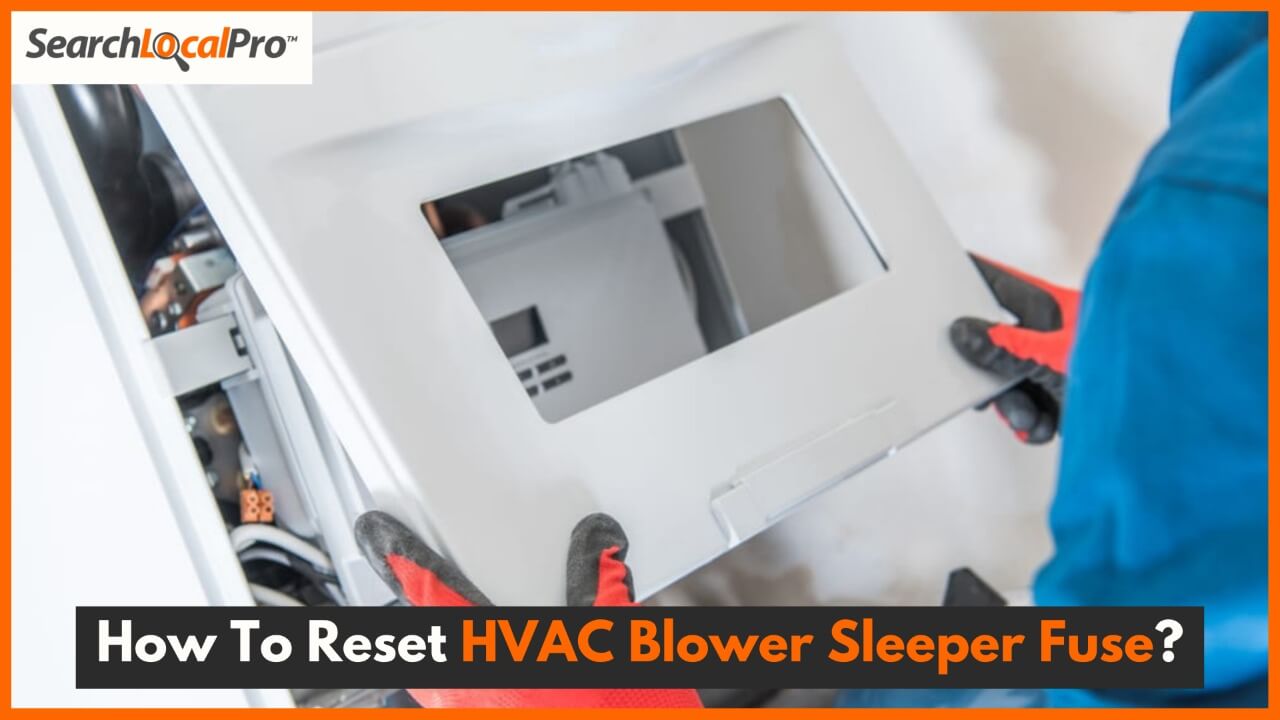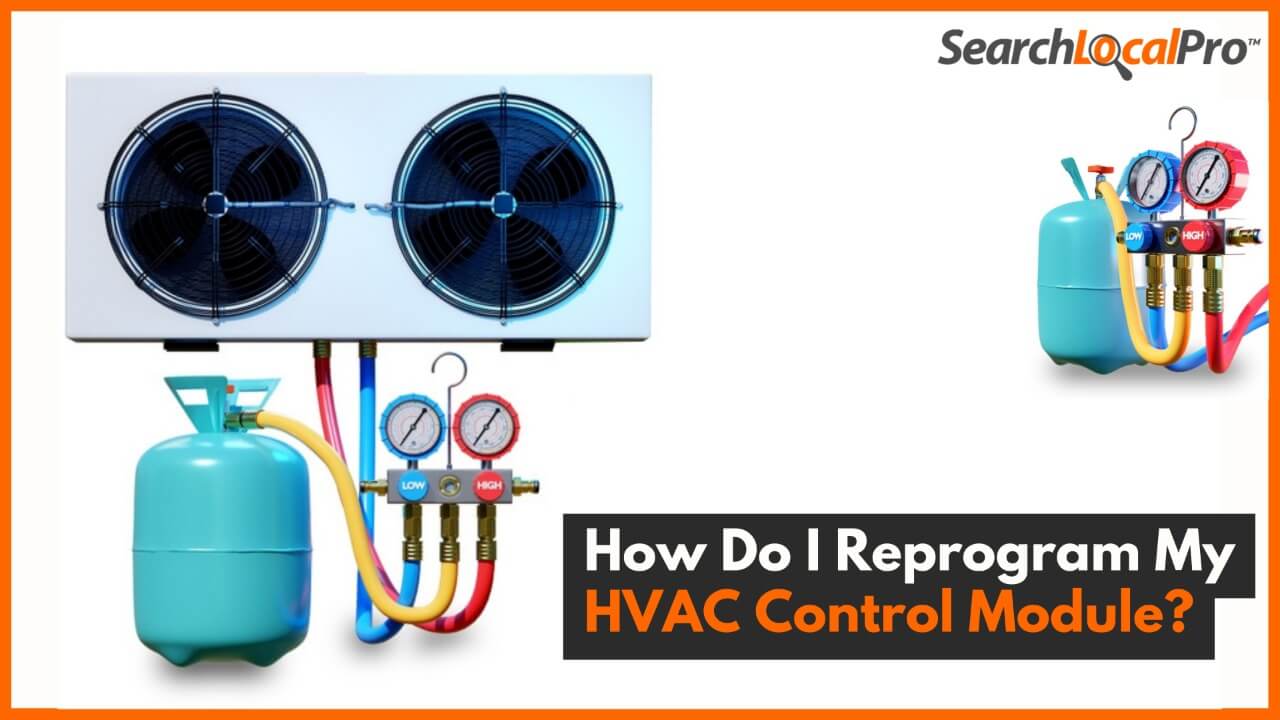Whether you want to be an effective HVAC technician or start your own HVAC agency, in either case, you would be required to complete various certification courses.
Getting your hands on HVAC certificates in a specific field helps you gain the trust of your customers and company owners, ultimately leading you to offer more effective services while warming your pockets.
However, let us clear your confusion regarding the types of certification for HVAC owners and technicians.
While living in any state, you might find differences in the requirements, but the certifications mentioned in the article are accepted throughout the country.
Therefore, let’s dig in to find the importance of certification and its types.
Certified HVAC Technician – A Worthwhile Field Or Not?
HVAC is one of the rapidly blooming and high-paying fields of the electro-mechanical industry. It is a skilled-based profession that can quickly help you earn more than 6 figures per month.
A career in the HVAC industry is quite promising. Whether due to the growing population or global warming, the need for the HVAC system is increasing with every passing day.
And for the same reason, it has become a non-negotiable requirement of both the commercial and domestic sectors
In short, surviving without an AC in summer and a heater in winter has become unimaginable.
And for every HVAC installation, an HVAC tech is required. Similarly, its maintenance, repair, and replacement also need an HVAC expert.
So, due to all these advantageous factors, HVAC is an industry that will be profitable for many coming years, and yes, it is worth all the time and energy you will serve to become a certified HVAC technician. It is certainly not a field of regret for your future!
What HVAC Technicians Do? A Description of their Job Responsibilities!
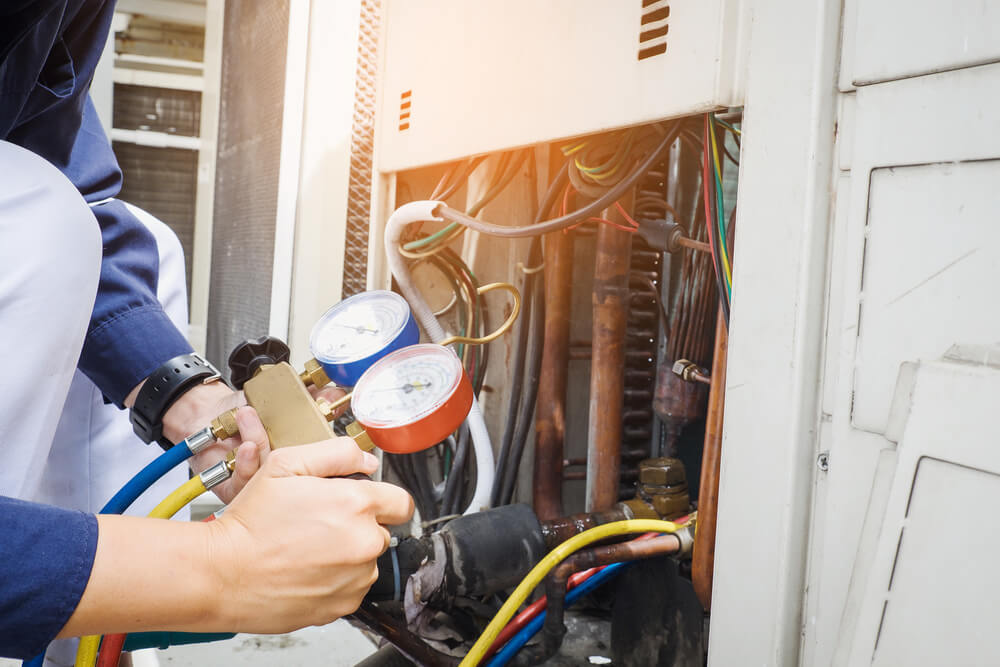
- Installation, repair, and Maintenance of the HVAC systems
- Replacement of the whole HVAC system or the components that are damaged or malfunctioning
- Diagnosis of the electrical, mechanical, and other kinds of technical problems in the HVAC systems
- Teaching the HVAC system owners about its functionality and maintenance
- Conduct performance tests and takes measures to boost the efficiency of the system
Types Of Certifications For HVAC Owners
There are hundreds of technical and vocational schools as well as universities that are offering certifications and degree programs in HVAC. Some include practical learning or on-job training, while some are theoretical studying-based.
While the requirements and studying patterns vary from institute to institute, we have enlisted the three categories of HVAC certification you can choose from to kick-start your career.
So, let’s thoroughly study them one by one.
- EPA Certifications:
- NATE Certifications:
- Preventive Maintenance Certification:
1. EPA Certifications
HVAC systems have numerous chemicals and gases that can cause catastrophic side effects to the ozone layer. And as the use of HVACs increases, the risk of ozone damage is also growing.
For this purpose, the Environment Protection Agency (EPA) has launched certifications for potential HVAC technicians to ensure they are using the proper practices to handle these chemicals and gases.
There are four levels of the EPA certifications as follows, depending on the skills and experience of HVAC technicians.
Type 1 EPA Certification:
These certifications deal with small HVAC appliances, particularly those containing less than 5 pounds of refrigerant gases.
It includes installation, repair, maintenance, and replacement services of appliances like window Air cooler units, water coolers, household freezers, and refrigerators.
Type 2 EPA Certification:
This certification deals with large HVAC appliances that require high pressure for functionality and contains more than 5 pounds of refrigerants in their system.
It also includes installation, repair, maintenance, and replacement services of appliances like commercial Air Coolers, commercial refrigerators, and heat pumps.
Type 3 EPA Certification:
This certification deals with large-sized HVAC appliances that work on low pressure, like chillers, ventilation, commercial heaters, and special refrigerators that work on low pressure.
In short, it includes all the appliances that don’t fit into the category of small HVAC appliances. It includes installation, repair, maintenance, replacement, and dispose-off services.
EPA Universal Certification:
EPA Universal Certificate permits the HVAC techs to offer installation, repair, maintenance, replacement, and disposal of services of all categories of HVAC appliances, regardless of what EPA certificate type they fall in.
Techs with EPA Universal Certificates are permissible to perform the services of all three EPA types.
Additional EPA Certifications:
- Indoor Air Quality Certificate:
Good Indoor air quality is a significant factor in having an HVAC system, whether in the commercial sector or household. And this certificate highlights the services based on this need mainly.
This certificate can significantly boost your skills from dealing with the basic knowledge about HVAC maintenance regarding air quality to diagnosing, treating, and replacing services regarding this factor.
The demand for IAQ-certified HVAC technicians is increasing, especially in commercial sectors, and having this certificate can help you land large-scale job opportunities.
- R-410A Certification:
This certificate deals with the basic skills and knowledge about the r-410A refrigerant, commonly used in HVAC systems on a large scale.
This certificate permits the technician to be skilled and knowledgeable enough to handle refrigerants and appliances correctly.
Although this refrigerant is commonly used in many appliances, this certificate is required to purchase R-410A. This certificate is also essential for the HVAC business owners to validate their services and authenticity.
2. NATE Certifications
NATE, for Non-American Technician Excellence, is a non-profit organization founded in 1997 by a committee of expert and leading HVAC technicians and business owners.
It is approved by the HVAC industry all over America and provides certification to technicians in one particular field like heating systems, cooling systems, or ventilation.
However, technicians can achieve this certification in multiple fields to widen their skills and expertise.
NATE certification is not mandatory for every technician but for an HVAC business owner, and it is considered a must certificate.
The NATE test is a bit different and complicated compared to other HVAC certificates, but its importance is worth your struggle.
From fundamentals of HVAC to problem-solving techniques, from research questions to equipment handling and repairing, the NATE certificate contains all the details of your field.
3. Preventive Maintenance Certifications
Preventive maintenance is another certificate that permits independent technicians and service companies to maintain all HVAC systems regularly.
Its syllabus includes common HVAC problems and their diagnosing techniques that can later lead to significant defects or sometimes replacements of the HVAC system.
The concept of routine HVAC systems services is quite in-demand for two reasons; it saves customers from emergencies like shutting down the AC on an extremely hot day or malfunctioning the heater on winter nights.
Second, the replacement services for HVAC systems are expensive, and customers can’t afford to have these replacement services again and again.
Therefore, they schedule routine maintenance check-ups from time to time for their HVAC system.
How To Get An HVAC License?
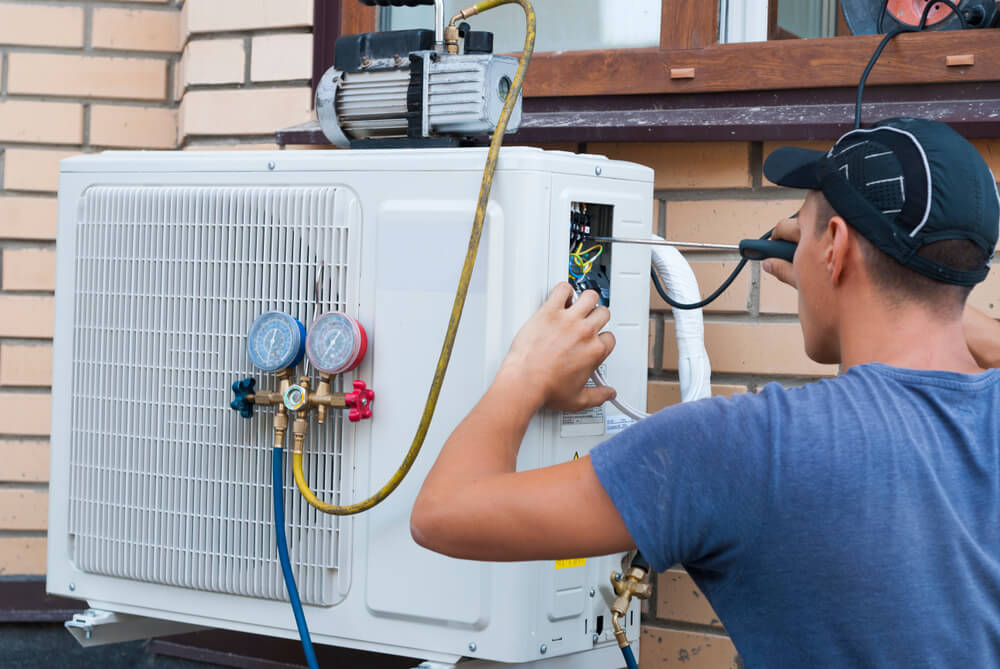
Getting a technical or vocational school certificate is not enough to get a license. You need to have an experience of at least four years under your belt as an associate HVAC technician to apply for a license.
If you have your certifications and the required amount of experience, follow the below-mentioned steps to get your HVAC technician license successfully.
- Submit your HVAC Contractors license application to CSLB (California State Licensing Board) and pay the fees of $330 with the application.
- There will be an exam based on the theoretical and practical parts. You have to be skilled and experienced enough to pass the exam. If you fail the exam, you have to apply again with an application.
- After passing the exam, you have to pay the fees of $180 and complete the documentation and other legal formalities.
- Congratulations! You have successfully applied for a license, and you’ll get it from the government once all the paperwork is completed.
Learn more on : How To Get An HVAC License
Requirements For A Issuing An HVAC License:
- There is a specific criterion to fulfill for successfully applying for an HVAC license. Here we have enlisted the major requirements from it below, so let’s have a look at them:
- The applicant’s age should be at least 18 years.
- The applicant must hold a social security number or Taxpayer identification number.
- The applicant must have work experience of at least four years as an associate HVAC tech or a journeyman under the supervision of an individual certified HVAC technician or a registered HVAC company.
- The applicant must have a certificate or degree in the HVAC field.
- The applicant should be skilled and experienced enough to pass the exam in order to issue a license.
- The applicant has to pay the registration and application fees for an HVAC license.
- To get an EPA 608 Certification, the applicant must also clear the exam.
- The applicant must pass the criminal background check test and fingerprinting feature.
There are many other general requirements for getting an HVAC certificate. You can check them by visiting the office or through the official website.
FAQs: Answering Your Common Queries
What Are The Different Types Of HVAC Certifications?
The major HVAC Certifications are of three types: EPA certifications, NATE certifications, and Preventive Maintenance certifications. The EPA certifications are divided into type 1, type 2, type 3, and Universal EPA certification.
How To Get HVAC Certifications?
You can get an HVAC certification from any technical or vocational school easily. They might range between 3 months to several years. Many universities also offer short HVAC certificate programs as well as degrees in HVAC education.
Can I Get HVAC Certification Online?
An HVAC certification includes theoretical learning and hands-on practice on the system. Therefore, you can get your theories classes online but have to attend the practical sessions. Overall, getting the online HVAC certification depends on your institute.
What Are The Different Levels Of HVAC Technicians?
The different levels of HVAC technicians depend upon their type of certification. The EPA certifications for HVAC technicians are of four levels; level 1 EPA technician, level 2 EPA technician, level 3 EPA technician, and universal EPA technician.
Which Is The Best HVAC Certifications For Technicians?
NATE HVAC certification is the leading and best certificate from all other categories. Its syllabus covers everything from the whole HVAC industry.
Whether it is about the fundamentals of HVAC or troubling shooting techniques, installation of the proper electrical system of the HVAC, or replacement of particular HVAC components, a NATE certificate permits the technician to perform every service.
Final Thoughts
So, this was it. HVAC is one of the most rapidly prospering industries with a bright future in terms of money and job opportunities.
But succeeding in this industry is a bit difficult as the certifications, degree programs, and licensing are not a piece of cake.
You need a comprehensive skill set and knowledge to succeed as an HVAC technician and owner.
We have discussed the four major HVAC certifications, detailed steps to get an HVAC license, and their requirements.
And we hope you find this guide helpful. If you still have any queries, questions, or confusion, drop them in the comment section below, and our experts will get your confusion sorted.


